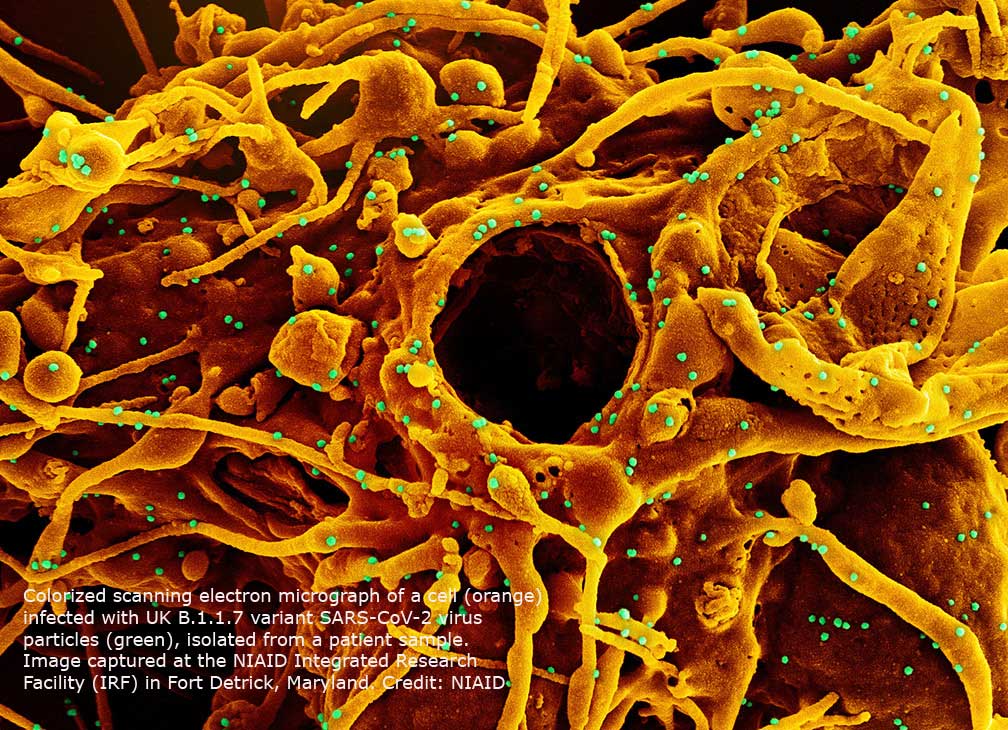SARS-CoV-2 variants testing becomes possible using PCR testing instead of full viral genome sequencing
As the pandemic continues beyond its one-year anniversary in the United States, a new issue that threatens the progress made over the past year is emerging SARS-CoV-2 variants. Since early 2021, numerous SARS-CoV-2 variants have been detected.
Research into these emerging variants is accumulating with regard to how the variants affect patient outcomes, each variant’s transmissibility, and the impact of these variants on the efficacy of COVID-19 treatments and vaccines.
For example, while researchers have not found conclusive clinical differences between the variants that have been identified, some early indicators show that certain variants could lead to worse outcomes. Additionally, while the clinical relevance of SARS-CoV-2 variants is still under investigation, certain SARS-CoV-2 variants are known to be more infectious, therefore accelerating transmission of COVID-19.
SARS-CoV-2 mutations can also affect the efficacy of COVID-19 treatments and vaccines. Moderna has already recognized that its COVID-19 vaccine is less effective against one SARS-CoV-2 variant, and the company is testing a second COVID-19 vaccine that may be more effective against one variant than the first Moderna vaccine. Moreover, convalescent plasma and monoclonal antibody treatments could also potentially be affected by SARS-CoV-2 mutations.
To Sequence or Not to Sequence SARS-CoV-2

As SARS-CoV-2 variants have gained more attention, testing for these variants has proven to be a challenge. The only existing method of determining if a COVID-19 infection is caused by a variant is to sequence the genome of the virus.
However, in an effort to make testing for SARS-CoV-2 variants more practical, Thermo Fisher Scientific recently announced the development of the TaqMan SARS-CoV-2 Mutation Panel. This assay provides laboratories with the means to identify SARS-CoV-2 mutations—without sequencing. To learn more about the TaqMan SARS-CoV-2 Mutation Panel and its applications, the STAT Intelligence Briefings Service spoke with Manoj Gandhi, MD, PhD, Senior Medical Director at Thermo Fisher Scientific.
“I like to use the example of somebody going to the store,” explained Gandhi. “If all you’re looking for is bread, milk, and eggs, why do you need a big semi-truck to go to the store? You can use your same car to go to the store and pick up what you want. Why do you need a whole sequencing tool to do it?”
Continued Gandhi, “With this assay you can test more samples and get the results faster and cheaper than you can with sequencing.” The assay can be used on existing PCR instruments and can be run in an hour.
While Thermo Fisher offers up to 22 different mutations that can be tested, the actual testing is designed to be highly customizable to the specific needs of a local region. “We have had laboratories that have used a combination of four or five, because they are only interested in those four or five mutations of concern,” Gandhi recounted. “When they are using four or five mutations, you can probably do around fifteen or sixteen samples per plate. If you are only interested in testing one specific mutation, then you can do around ninety samples in the same plate, so it is highly customizable, depending on what you choose.”
Gandhi: Monitor SARS-CoV-2 Variants for Relevance in Assay Performance
With the changes in the prevalence of different variants and emergence of new SARS-CoV-2 variants, keeping the assay up to date is a high priority. “We have a team that is fully dedicated to monitoring new mutations,” Gandhi said. “Our team is constantly monitoring the databases as closely as possible to see if mutations in the viral genome impact our assay. If we feel that a new mutation is of clinical relevance or of particular relevance, then we will also include that as part of this panel.”
While this new assay has many potential applications with the emergence of COVID-19 variants, it does not yet have regulatory authorization for clinical use. “Right now, this is a research-only product, used for surveillance,” Gandhi explained. “But if there is enough evidence to show patient care or any sort of intervention being dependent on the mutations, we certainly would consider regulatory approval, whether this be [emergency use authorization] EUA or other regulatory approval. That certainly is a consideration, but right now, the assay is designed to be used as a surveillance tool.”
As research on SARS-CoV-2 variants continues and the public’s awareness of the implications of these variants increases, better methods for testing to identify these variants may become necessary. The TaqMan SARS-CoV-2 Mutation Panel is one of the first assays that allows for PCR analysis of particular SARS-CoV-2 mutations and enables clinical laboratories to track these mutations without the expense and inconvenience of sequencing.
New On-Demand Webinar Reveals Research into Emerging SARS-CoV-2 Mutations and Existing TaqPath Assay Performance
The emergence of multiple SARS-CoV-2 variants brings fast-moving questions for clinical laboratory administrators about the ability to identify new potential coronavirus SARS-CoV-2 variants. For those interested in research into these emerging SARS-CoV-2 variants, a new webinar recorded March 24, 2021, has been posted for free streaming on demand.
The 60-minute webinar with live Q&A features insights from Gandhi, as well as a case study of work at the University of California San Diego and Scripps Research Institute. Register for free watching and learning here, or copy and paste this URL into your browser: https://www.darkdaily.com/webinar/emerging-sars-cov-2-mutations-impact-on-taqpath-assay-performance-and-its-clinical-implications/.

—By Caleb Williams, Editor, STAT Intelligence Briefings






